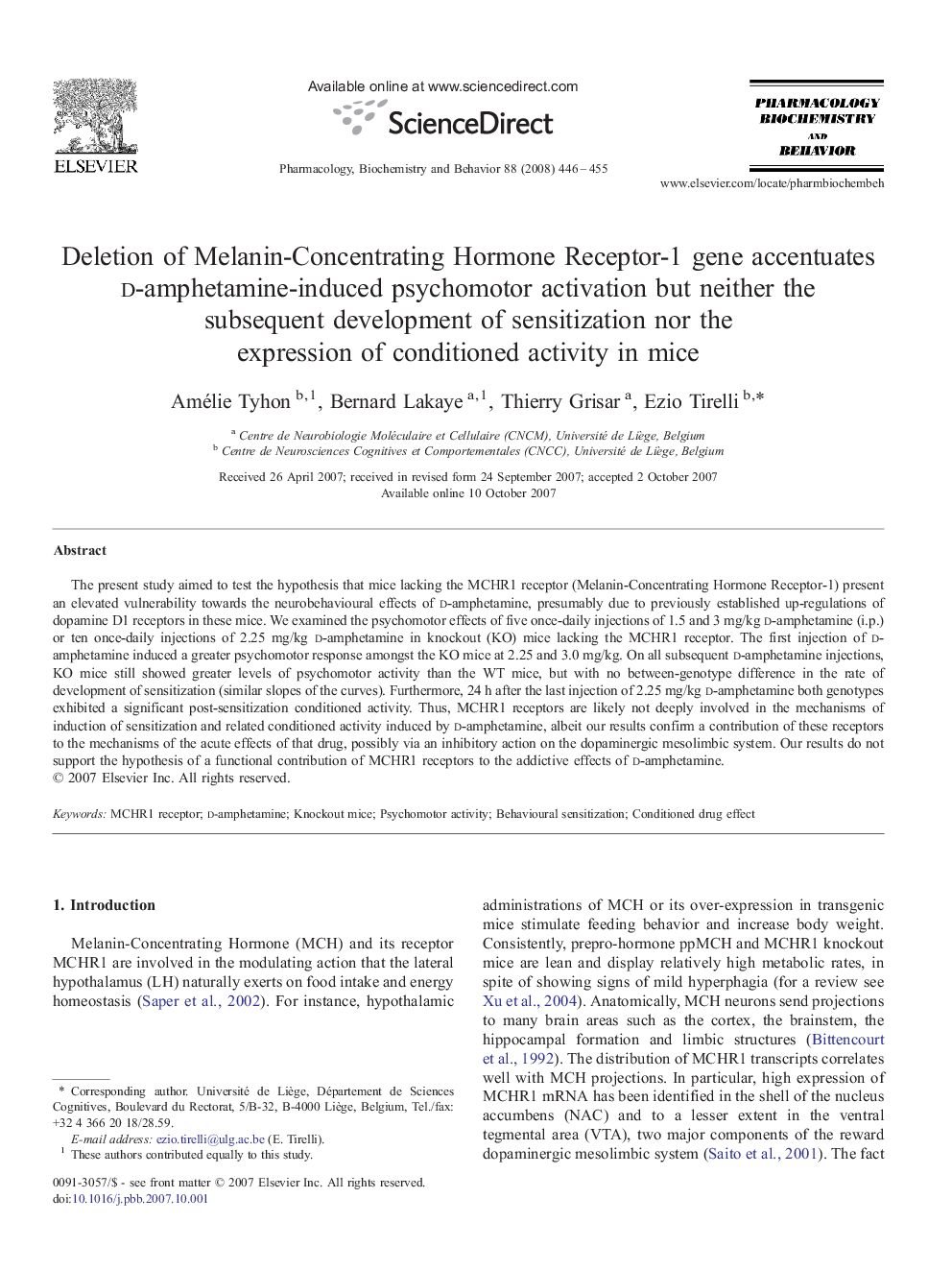| Article ID | Journal | Published Year | Pages | File Type |
|---|---|---|---|---|
| 2014002 | Pharmacology Biochemistry and Behavior | 2008 | 10 Pages |
Abstract
The present study aimed to test the hypothesis that mice lacking the MCHR1 receptor (Melanin-Concentrating Hormone Receptor-1) present an elevated vulnerability towards the neurobehavioural effects of d-amphetamine, presumably due to previously established up-regulations of dopamine D1 receptors in these mice. We examined the psychomotor effects of five once-daily injections of 1.5 and 3Â mg/kg d-amphetamine (i.p.) or ten once-daily injections of 2.25Â mg/kg d-amphetamine in knockout (KO) mice lacking the MCHR1 receptor. The first injection of d-amphetamine induced a greater psychomotor response amongst the KO mice at 2.25 and 3.0Â mg/kg. On all subsequent d-amphetamine injections, KO mice still showed greater levels of psychomotor activity than the WT mice, but with no between-genotype difference in the rate of development of sensitization (similar slopes of the curves). Furthermore, 24Â h after the last injection of 2.25Â mg/kg d-amphetamine both genotypes exhibited a significant post-sensitization conditioned activity. Thus, MCHR1 receptors are likely not deeply involved in the mechanisms of induction of sensitization and related conditioned activity induced by d-amphetamine, albeit our results confirm a contribution of these receptors to the mechanisms of the acute effects of that drug, possibly via an inhibitory action on the dopaminergic mesolimbic system. Our results do not support the hypothesis of a functional contribution of MCHR1 receptors to the addictive effects of d-amphetamine.
Related Topics
Life Sciences
Biochemistry, Genetics and Molecular Biology
Biochemistry
Authors
Amélie Tyhon, Bernard Lakaye, Thierry Grisar, Ezio Tirelli,
